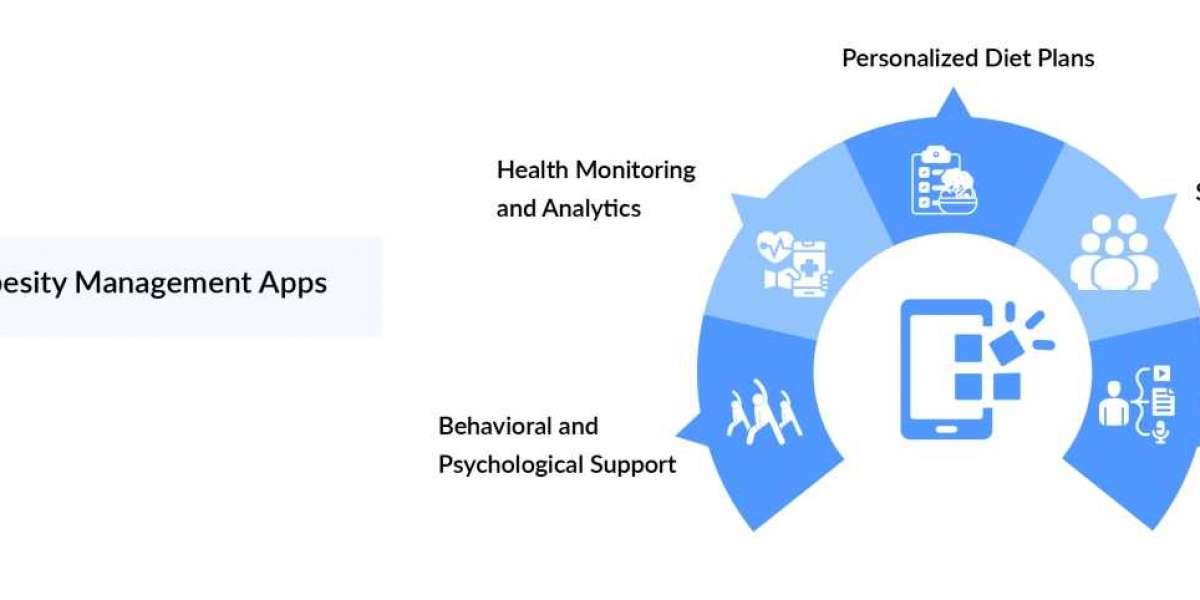The rising prevalence of obesity globally has triggered the need for innovative, accessible, and scalable healthcare solutions. One such solution making waves in recent years is the increasing use of mobile health apps. These digital tools empower users to actively manage their weight and overall wellness through personalized, real-time support. With obesity contributing to multiple chronic illnesses, mobile apps are quickly becoming essential companions in health journeys.
The Expanding Role of Obesity Apps
Digital technologies have transformed the landscape of weight management. Obesity apps are now widely adopted by individuals aiming to lose weight or maintain a healthier lifestyle. These platforms are designed with features like dietary tracking, step counters, and behavioral therapy prompts to aid sustainable lifestyle changes. They also foster accountability through reminders, motivational nudges, and user community support.
Key Features Driving Engagement
Today's mobile health apps for obesity provide a variety of functionalities that support users throughout their weight loss journeys. These include:
Food and calorie logs
Exercise and movement tracking
Personalized goal-setting
Progress visualizations
Integration with wearables and health records
AI-powered feedback and gamification further boost user engagement, making the process enjoyable and effective.
Barriers in Adoption and Retention
Despite their growing popularity, these apps face some limitations. A significant number of users discontinue usage within a few weeks, often due to lack of personalization or motivation. Privacy concerns around personal health data and the absence of clinical oversight in some apps raise questions about long-term trust and utility. Moreover, individuals without access to digital tools or with low digital literacy may find these apps difficult to use, limiting their outreach.
Companies Leading the Market
The most popular names in the industry include Noom, MyFitnessPal, Lose It!, and WW (Weight Watchers). These companies have leveraged behavioral science, data analytics, and user-friendly design to create compelling mobile health app for weight management experiences. Many of them are forming partnerships with insurers, employers, and healthcare providers to embed digital obesity management into broader health strategies.
The Path Forward
As healthcare systems embrace digital tools, the evolution of mobile obesity apps is expected to accelerate. Future trends include deeper AI integration, expanded telehealth support, multilingual accessibility, and outcome-driven models. Increased regulatory clarity will further boost user confidence in adopting these apps.
Final Thoughts
In an age where lifestyle diseases are escalating, mobile health apps offer a promising, user-centered way to combat obesity. With continued innovation and supportive health policies, these platforms could redefine how individuals approach long-term weight management.
Latest reports offered by Delveinsight
ANCA Vasculitis Market | B-cell Maturation Antigen Targeted Therapies Market | Bacterial Pneumonia Market | Cataract Surgery Complications Market | Chagas Disease Market | Coccidioidomycosis Market | Diabetic Gastroparesis Market | Facial Lines Market | Herpes Labialis Market | Human Papillomavirus-Positive Oropharyngeal Cancer Market | Hypophosphatasia Market | Intraocular Lymphoma Market | Kawasaki Disease Market | Langerhans Cell Histiocytosis Market | Nephrotic Syndrome Pipeline | Neurogenic Detrusor Overactivity Market | Osteochondrodysplasia Market | Pigment Epithelial Detachment Market | Presbyopia Market | Primary Ciliary Dyskinesia Market







